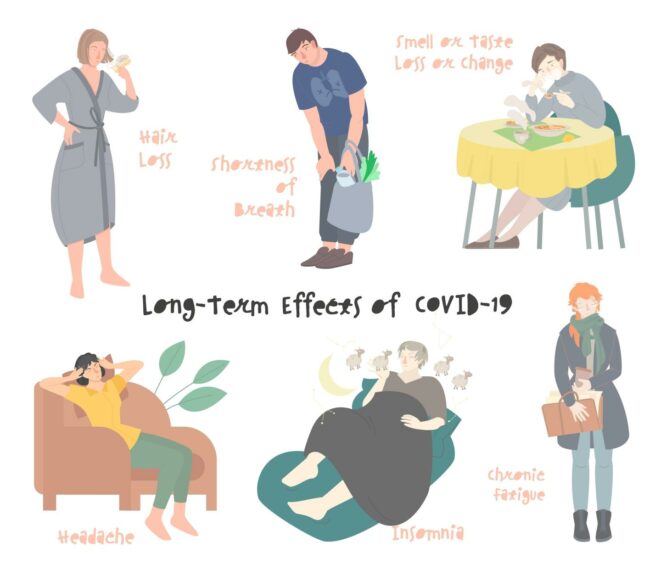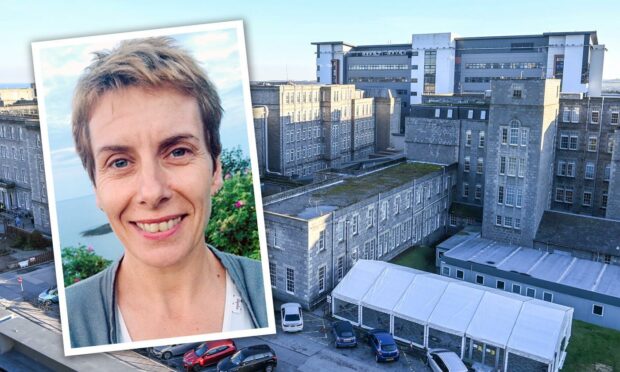A health boss has revealed how milder new coronavirus variants could be “game-changing” for the NHS.
Jillian Evans, head of health intelligence at NHS Grampian, said Omicron has not had as severe an impact as expected.
And although she remains cautious, she’s “optimistic” we’re now turning a corner with the Omicron wave.
“The reason we’re optimistic is there’s less likelihood of severe disease,” she said.
“That’s a game-changing situation. It means that you can start to manage the situation with Covid as you start to widen out what you can do in other healthcare situations.
“You can start to deal with other aspects of care that have been on hold for a lot of people.”
What’s happening with hospital admissions?
It was feared the Omicron variant could spike the number of coronavirus patients admitted to hospital because it’s more contagious than Delta.
Patient admissions were increasing at NHS Grampian hospitals but they’ve been reducing over the past week.
There were 103 coronavirus patients in hospital on January 28th compared to 86 patients on February 2.
Although numbers of positive cases have been rising in the Aberdeen and Aberdeenshire communities over the past fortnight.
“Is that a sign of something that we should be worried about? Or is it just fluctuation which is inevitable? Only time will tell,” Jillian said.
“But you have got to think that restrictions changed in January when they were lifted and we’re starting to see an increase in cases which may be linked to that.”
The Omicron sub-variant BA.2 has also now been detected in Scotland and could be more transmissible which could have an impact on numbers too.
Why do we still need to control case numbers?
Many people will be left wondering why we still need to control case numbers with the Omicron variant being less severe.
But Jillian highlighted that Covid-19 is still a very serious disease with unknown long-term health outcomes, even for the Omicron variant.
“People think what on earth is the problem here, you know, if we’re not seeing hospitalisations rising?
“They’re asking why are we bothering trying to control it and what’s the point, let’s just live our lives.
“There’s some real and immediate individual health term risks associated with Covid, particularly if you’re unvaccinated, but there’s also the long term health risks.
“So if you can avoid getting it it’s worth doing.
“But the other reason that we want less Covid is that there’s less opportunity for new variants.”
Omicron severity and long Covid
Record numbers of people are suffering from long Covid with an estimated 100,000 people in Scotland affected.
There’s no specialist clinics set up in Scotland, but research is under way to find out which services these patients are going to for help.

Typical symptoms of long Covid.The research will help identify how much demand there is for specialist treatment.
Jillian highlighted how much of an impact Covid has had on patients during the pandemic.
“I’m thinking of all the poor people who have had to wait much longer for operations or to see a doctor or specialist to start treatment,” she said.
“But I’m also thinking about the legacy of Covid and the long term disabilities that far too many people are going to have as a result of being infected.”
‘It’s too early to go back to normal’
Parents of at-risk children between the ages of five and eleven are being sent letters about the benefits of vaccines in Grampian.
And letters will also be sent out soon to residents between the age of 18 and 59 who have not yet had their booster.
Jillian remains cautious about coronavirus given the recent rise in case numbers.
“It could be a flash in the pan, it could just be variation and explained away by that,” she said.
“But it may not be, and so it’s too early to say let’s get back to a completely normal situation and we’re home free.
“I do think we are turning a corner on the Omicron wave. I do definitely think that, but it’s just in the face of continued uncertainty.”
Read more health news…
The pandemic could affect staffing numbers in NHS for some time
How moving closer to the sea helped me deal with grief of losing sister
100 Years of Insulin: The scientists within reach of finding a cure for diabetes

